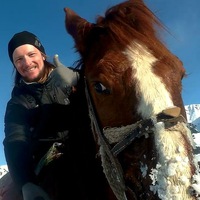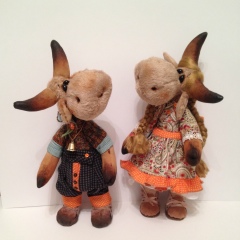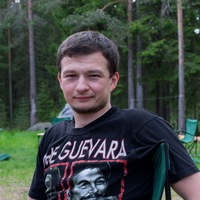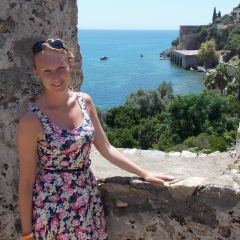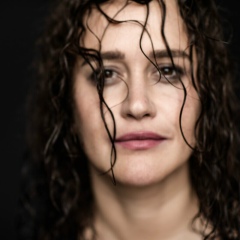Когда-то я начала писать роман/повесть/рассказ о своем детстве, которое я провела с бабушкой и дедушкой, с моими воевавшими бабушкой и дедушкой. Вот небольшой отрывок о людях, которые меня воспитали...
"...В каждом доме есть свои привычки и традиции. У дедушки была своя вилка. Тяжелая... с черной рукояткой. С единственной надписью Rostfrei. Этой вилкой он пользовался всю свою жизнь с послевоенных лет и называл ее трофеем.
Дедушка встретил бабушку во время войны, когда приехал в отпуск в Москву. Бабушка мыла полы с задранной юбкой. Молодой мичман увидел ее ножки и ляпнул: «Будешь меня ждать». Она и ждала. А после войны дед увез ее в Пиллау, сейчас это город Балтийск, самый западный город России. Там и появилась в 1948 году на свет мама. Вещей не было, денег не было – кроватку ребенку сделали из ящика для снарядов, а вместо пеленок использовали морские портянки. В начале пятидесятых рядом с домом дедушка нашел закопанные ящики. В них оказалась посуда: дорогой сервиз с перламутровыми рыбами, небьющиеся чашки и та самая вилка. На оставшихся тарелках до сих пор можно прочитать: 1939 год. А рядом свастика.
То, что я появилась на свет – это удача не одного десятка лет. Дедушка не умер на фронте, бабушка не сошла с ума, вылавливая трупы из воды. В голодном и холодном Балтийске появилась мама. Есть было нечего, и она, оставаясь в доме одна, кушала золу, отскребала ее от печки и жевала. Лет в пять ее чуть не разорвало снарядом, оставшимся со времен войны. Недалеко от их дома было огромное маковое поле. Красивое, яркое. Только все неровное из-за срывов мин и огороженное колючей проволокой. Местные ребята нашли там снаряд и притащили его во двор. Бабушка запретила маленькой маме играть вместе с ними и забрала обедать. Через минуту раздался взрыв. Соседка несла дочку на руках, а девочка ей повторяла: «Прости меня, мамочка, я больше так не буду, прости меня». Женщина воет и придерживает выпадающие органы дочурки. С тех пор мама не любит маки".
"...В каждом доме есть свои привычки и традиции. У дедушки была своя вилка. Тяжелая... с черной рукояткой. С единственной надписью Rostfrei. Этой вилкой он пользовался всю свою жизнь с послевоенных лет и называл ее трофеем.
Дедушка встретил бабушку во время войны, когда приехал в отпуск в Москву. Бабушка мыла полы с задранной юбкой. Молодой мичман увидел ее ножки и ляпнул: «Будешь меня ждать». Она и ждала. А после войны дед увез ее в Пиллау, сейчас это город Балтийск, самый западный город России. Там и появилась в 1948 году на свет мама. Вещей не было, денег не было – кроватку ребенку сделали из ящика для снарядов, а вместо пеленок использовали морские портянки. В начале пятидесятых рядом с домом дедушка нашел закопанные ящики. В них оказалась посуда: дорогой сервиз с перламутровыми рыбами, небьющиеся чашки и та самая вилка. На оставшихся тарелках до сих пор можно прочитать: 1939 год. А рядом свастика.
То, что я появилась на свет – это удача не одного десятка лет. Дедушка не умер на фронте, бабушка не сошла с ума, вылавливая трупы из воды. В голодном и холодном Балтийске появилась мама. Есть было нечего, и она, оставаясь в доме одна, кушала золу, отскребала ее от печки и жевала. Лет в пять ее чуть не разорвало снарядом, оставшимся со времен войны. Недалеко от их дома было огромное маковое поле. Красивое, яркое. Только все неровное из-за срывов мин и огороженное колючей проволокой. Местные ребята нашли там снаряд и притащили его во двор. Бабушка запретила маленькой маме играть вместе с ними и забрала обедать. Через минуту раздался взрыв. Соседка несла дочку на руках, а девочка ей повторяла: «Прости меня, мамочка, я больше так не буду, прости меня». Женщина воет и придерживает выпадающие органы дочурки. С тех пор мама не любит маки".
Once I started writing a novel / story / story about my childhood, which I spent with my grandparents, with my grandparents who fought. Here is a small excerpt about the people who raised me ...
"... Each house has its own habits and traditions. Grandfather had his own fork. Heavy ... with a black handle. With a single inscription Rostfrei. He used this fork all his life since the post-war years and called it a trophy.
My grandfather met his grandmother during the war, when he came on vacation to Moscow. Grandmother washed the floors with a skirt upraised. The young midshipman saw her legs and blurted out: “You will wait for me.” She waited. And after the war, his grandfather took her to Pillau, now it is the city of Baltiysk, the most western city of Russia. There was born in 1948 mother. There were no things, there was no money - the bed for the child was made from a box for shells, and sea footcloths were used instead of diapers. In the early fifties, near the house, grandfather found buried boxes. They turned out to be dishes: an expensive set of mother-of-pearl fish, unbreakable cups and the very fork. On the remaining plates you can still read: 1939. And next to the swastika.
The fact that I came into the world is not one decade of luck. The grandfather did not die at the front, the grandmother did not go mad, catching the corpses from the water. In hungry and cold Baltiysk mother appeared. There was nothing, and she, remaining in the house alone, ate ashes, scrubbed her from the stove and chewed. In about five years she was nearly blown up by a shell left over from the time of the war. Not far from their home was a huge poppy field. Beautiful, bright. Only everything is uneven due to mine breakdowns and fenced with barbed wire. Local guys found a shell there and dragged him into the yard. Grandmother forbade little mother to play with them and took lunch. A minute later there was an explosion. The neighbor carried her daughter in her arms, and the girl repeated to her: “Forgive me, Mommy, I will not do this again, forgive me.” A woman howls and holds the daughter’s drop-down organs. Since then, mom doesn't like poppies. "
"... Each house has its own habits and traditions. Grandfather had his own fork. Heavy ... with a black handle. With a single inscription Rostfrei. He used this fork all his life since the post-war years and called it a trophy.
My grandfather met his grandmother during the war, when he came on vacation to Moscow. Grandmother washed the floors with a skirt upraised. The young midshipman saw her legs and blurted out: “You will wait for me.” She waited. And after the war, his grandfather took her to Pillau, now it is the city of Baltiysk, the most western city of Russia. There was born in 1948 mother. There were no things, there was no money - the bed for the child was made from a box for shells, and sea footcloths were used instead of diapers. In the early fifties, near the house, grandfather found buried boxes. They turned out to be dishes: an expensive set of mother-of-pearl fish, unbreakable cups and the very fork. On the remaining plates you can still read: 1939. And next to the swastika.
The fact that I came into the world is not one decade of luck. The grandfather did not die at the front, the grandmother did not go mad, catching the corpses from the water. In hungry and cold Baltiysk mother appeared. There was nothing, and she, remaining in the house alone, ate ashes, scrubbed her from the stove and chewed. In about five years she was nearly blown up by a shell left over from the time of the war. Not far from their home was a huge poppy field. Beautiful, bright. Only everything is uneven due to mine breakdowns and fenced with barbed wire. Local guys found a shell there and dragged him into the yard. Grandmother forbade little mother to play with them and took lunch. A minute later there was an explosion. The neighbor carried her daughter in her arms, and the girl repeated to her: “Forgive me, Mommy, I will not do this again, forgive me.” A woman howls and holds the daughter’s drop-down organs. Since then, mom doesn't like poppies. "

У записи 35 лайков,
0 репостов,
638 просмотров.
0 репостов,
638 просмотров.
Эту запись оставил(а) на своей стене Дарья Пуршева










